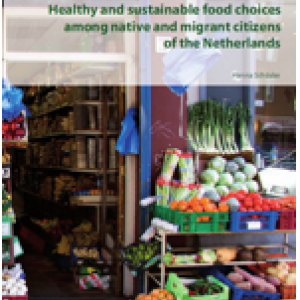
In recent years there has been increasing attention for facilitating healthier and more sustainable food choices. Research and policy making in the field, however, have largely ignored important cultural changes that are taking place in the Netherlands (and elsewhere in Europe) due to the inflow of new ethnic groups.
Abstract
In recent years there has been increasing attention for facilitating healthier and more sustainable food choices. Research and policy making in the field, however, have largely ignored important cultural changes that are taking place in the Netherlands (and elsewhere in Europe) due to the inflow of new ethnic groups.
So far, little effort has been made to develop a better understanding of non-Western consumers, their specific retail channels and their food consumption patterns. This report focuses on Turkish and Chinese Dutch and discusses sustainability relevant topics like meat consumption, perceptions of food quality, health, animal welfare and the environment. The data were collected by means of expert interviews and a large survey.
The report shows that there are great food cultural differences among the various ethnic groups. Especially, the influence of religion and the normative framework of the Islamic dietary food laws give the Turkish Dutch a unique profile. In general, migrant groups are less sensitive to food labels such as organic and the Turkish Dutch focus strongly on halal.
It is argued that the entry points for facilitating healthier and more sustainable food choices depend on the cultural background and should be given central attention if we seek to address lifestyle choices and motivate structural change.
Read the full report here.
Read more about sustainable healthy diets and consumer behaviour on our website.







Post a new comment »